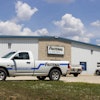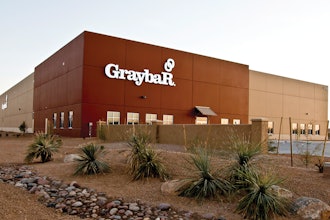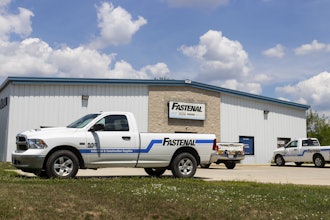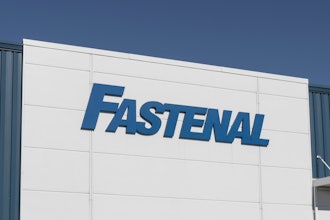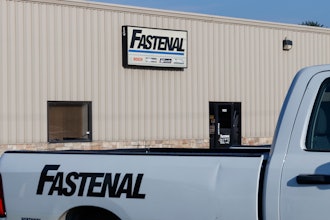Distributors who strategically reevaluate and modify their sales model could pave the way for significant long-term gains at this pivotal time for the industry.
Economic reports continue to provide encouraging news for the industrial distribution industry. The latest Manufacturing ISM Report On Business shows manufacturing growth for the 22nd consecutive month, and The Manufacturers Alliance/MAPI is predicting the growth to continue, with full recovery anticipated by the end of 2012. As macroeconomic indicators continue to improve, this is an opportunistic time for industrial distributors to grow.
A product-centric sales model is the industry standard, but this may not be the most effective way to win (and keep) accounts. As distributors pursue larger and more lucrative customers, the traditional sales team may not have the skills necessary to work directly with the top decision-makers at these companies to acquire and grow accounts. As such, companies who strategically reevaluate and modify their sales model could pave the way for significant long-term gains at this pivotal time for the industry. One approach to consider is the “hunter/farmer” sales model.
The hunter/farmer model is a common sales strategy used in multiple industries, but it is not widely used by industrial distributors. As explained in the book Sales Force Design for Strategic Advantage, hunters specialize in landing new business. Once the sale is final, farmers take over the account to grow the relationship and generate additional business. Lawson Products decided to test this model with strategic accounts, which we define as large, multi-location enterprises. We charged our senior sales representatives to sell our MRO solutions to decision-makers and partner with existing field sales representatives to provide ongoing technical expertise and customer support. These two roles come with very different skill requirements.
At Lawson Products, most of the sales representatives hired fit the farmer model. They have extensive product knowledge and provide the technical service and expertise our customers rely on. They are comfortable on a warehouse or production floor with the maintenance engineer, discussing which bolt is the best fit for the customer’s equipment or advising on the best inventory management system for their unique needs.
The challenge for the farmer is selling an account to a group of decision-makers (controllers, plant managers, procurement officers, and CFOs) as this group is more interested in solutions rather than specific products. A CFO will ask, “How can I reduce my total cost of procurement?” rather than, “How can I save money on this bolt?” This is where a hunter can help. Successful hunters know how to listen to the customer’s problems and determine what solution best meets their needs. Lawson Products trained their strategic account hunters in financial literacy so they understand their customer’s balance sheet and profit and loss statement. With this information they can effectively plan a strategy that provides the best solution for the customer. For example, the customer’s focus may be keeping their inventory at a minimum to maintain a cash position on their balance sheet, so the senior sales representative would suggest an inventory management system as the solution.
There are many different ways to implement the traditional hunter/farmer approach, and there is a debate on what is most successful. Some believe it is best to have the hunter work on his/her own and bring the farmer in once the deal has been closed. Others have the hunter and farmer work together from day one. We decided to meld both of these approaches.
Through a survey of MRO customers, we found that most prefer to order through a field sales representative for VMI and strongly value technical support. That information shaped our decision on how to deploy the hunter/farmer team approach, and the result has proven to be an effective strategy to acquire new business while still meeting the customer’s need for quality service and technical expertise. The hunter focuses on uncovering the challenge or problem and developing the solution. Once he or she is ready to present the solution to the potential new account, he/she brings the farmer to discuss product specifics, service requirements, and showcase the expertise that the customer will receive.
New Avenues
Rethinking our sales model is one part of a larger sales transformation effort that Lawson Products is in the midst of executing, and it is already generating measurable results, particularly within strategic accounts. In 2010, we had a 4.6 percent increase in net sales, and the growth in the strategic accounts segment contributed to this significantly. This trend continues in the first quarter of 2011; we reported a net sales increase of $7.7 million which strategic accounts factored in considerably. In fact, combined with government accounts, these two sectors accounted for nearly 20 percent of net sales in the first quarter of 2011, compared to approximately 14 percent in the same quarter last year.
Our customers have responded positively to this new hunter/farmer model. For example, when we replied to Smith International’s (now Smith International, Inc., A Schlumberger Company) RFP for nuts and bolts, we relied on our hunter to develop a solution to meet their needs and appeal to Smith International’s decision-makers. “Nuts and bolts are nuts and bolts; we chose Lawson Products because of the other services they offered and the relationship we developed with their sales team,” said Tim Stephens, global category manager of Smith International, Inc., A Schlumberger Company. “We appreciated the solutions they provided and the attention the core implementation team members provided during the RFP process. All four members attended every RFP meeting in person, and we valued that face-to-face interaction.”
This new approach also resonates well with our sales team. When we first announced this new strategy, a 25-year sales veteran was immediately receptive. “I spend most of my time providing service to my existing customers and don’t have time to source new accounts,” he explained to me. “This model provides me with the opportunity to focus on my strengths while working with another sales team member who has complementary skills. I can now meet my customers’ needs and grow accounts simultaneously.”
As distributors evaluate their sales approach, it is important to consider what’s best for the company, the sales team, and what the customer wants. Our success shows that this may be a powerful strategy for other distributors targeting large enterprise accounts. As the industrial distribution market continues to rebound, distributors should consider reevaluating their sales model to take advantage of existing market opportunities. A move to the hunter/farmer model may be just the thing to help a distributor take their sales organization to the next level.
About The Author
Harry Dochelli is executive vice president and chief operating officer of Lawson Products, Inc. (NASDAQ: LAWS), an industrial distributor of more than 300,000 different maintenance and repair supplies. He has more than 25 years of leadership experience in sales and supply chain in the distribution industry. In his role as chief operating officer, Dochelli is also responsible for overseeing the day-to-day operations of Lawson Products, including sales, marketing, customer service, operations, supply chain management, information technology, and human resources.




